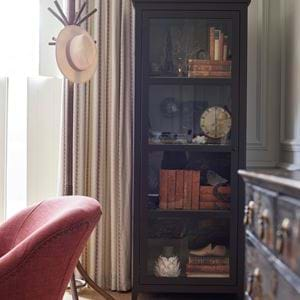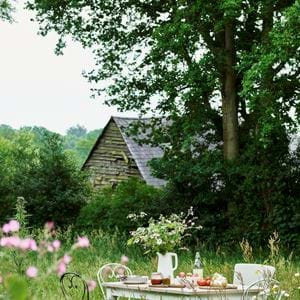A different perspective Part I
A different perspective Part I
For those who know Neptune well, you might have noticed two words that we use time and time again – we believe. They’re important to us because we want to do everything we can to explain what we stand for and the values that drive everything we do.
At the start of September, you'll might have started to notice our newest advertising campaign, lead by the image to the left. This time, we’ve chosen one line that we think sums up all of our beliefs, strongly and succinctly. Every month or so, either Giles or I will be writing a short article here on our online journal to explain all of the related strands that this line covers in the hope that it gives you a greater understanding of all of the thought that fuels our designs, and ultimately our philosophy.
We believe in a different perspective.
We aren’t trying to achieve perfection, despite us being a group of perfectionists – myself in particular. Many companies claim that they are, but we’re trying to create things that make life a bit better in the best way that we can.
Because we’re meticulous in the way we do things, and because we have the highest standards, we’ve found that many people think we’re a company trying to create stereotypically perfect homes and artificially perfect lifestyles. This is even true of people at Neptune. Only a few weeks ago I purposefully moved around a load of cups, glasses and jugs on one of our kitchen shelves, returning later to see they’d all been put back – standing ‘perfectly’ in line. Pristine and rigid aren’t part of our vocabulary though. Often, asymmetry is more appealing than symmetry; ironically, it feels more in balance. It has something to do with nature – when did you ever see bluebells appear in a symmetrical clump? Or a tree’s branches sprouting off each side at the same point, at the same angle? I moved everything again to a more natural, sporadic arrangement, and decided this would be the first part of our perspective that I would write about.
We want to create things that are made to be lived in. Not show homes, not perch-on-the-edge sofas, not must-always-be-plumped pillows, not never-to-be-touched crockery. And one of the best places for us to start is by choosing materials that can take on life. Beneath the covers of our sofas, armchairs, footstools and headboards is a solid timber frame made with proper joinery. We created IsoGuard® (our timber protection oil) as a way to make wood as resilient as it possibly can be without affecting its natural texture and qualities. We’ve developed a fabric library with textiles that will withstand some rough and tumble. And we’ve not said no to foam in our upholstery just because it doesn’t sound as nice as feather and down – we use all three instead. Everything in our collections isn’t meant to be approached with caution when you use it. Put your feet up wherever you want, let the dog on, and if you don’t want to use a coaster then don’t – it’s your house, your rules. Your furniture can take it.
It’s also worth pointing out that there’s a stage in every piece of furniture’s life where it’s not going to look its best. Take our Matilda armchair in this image as an example. When you get it home, it’s going to look marvellous. It’ll stay that way for a while, and you’ll almost not want to touch it. But at some point, you’re spill some tea, or you’ll scuff it somehow, and you’ll be heartbroken. But then you’ll spill something else, and someone else will scuff it too, and eventually, your piece will start to tell the story of your home’s life. We’ve designed everything with this in mind – they’ll age graciously and gracefully. And hopefully, it will make you cherish them all the more. If this chair were upholstered in pure polyester velvet, it wouldn’t develop character in a way that cotton velvet does as and when the scuffs creep in. We have a decades-old Neptune dresser at home that’s got several dents, but I wouldn’t swap it for a new one for the world. Why on earth would I? Natural materials can deal with the hard knocks of life and they’ll look all the better for them.
Perfectionists we might be, but we’re also pragmatists (form and function are neck and neck for us; practicality is pivotal), and we’re optimists through and through. We have a shared, genuine belief that we can make life better through good design. That’s what we’re trying to achieve. That’s our definition of perfection.
John Sims-Hilditch is the co-founder of Neptune. He’s officially the managing director, but when asked what job title he’d give himself he said ‘director of doing the right thing’. He’s a father of three, the husband of our creative director, Emma, and an avid sailor.






